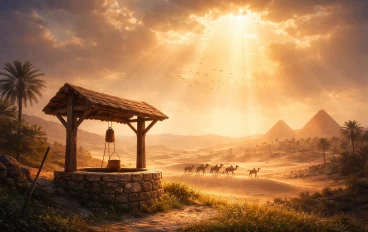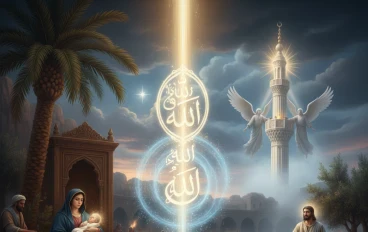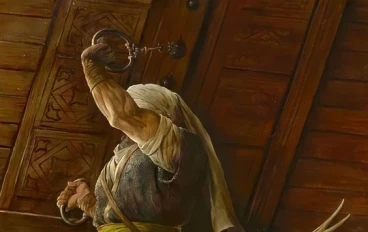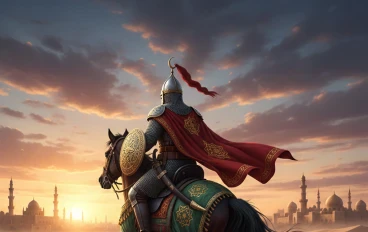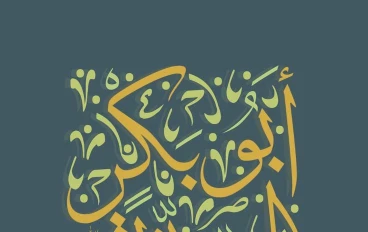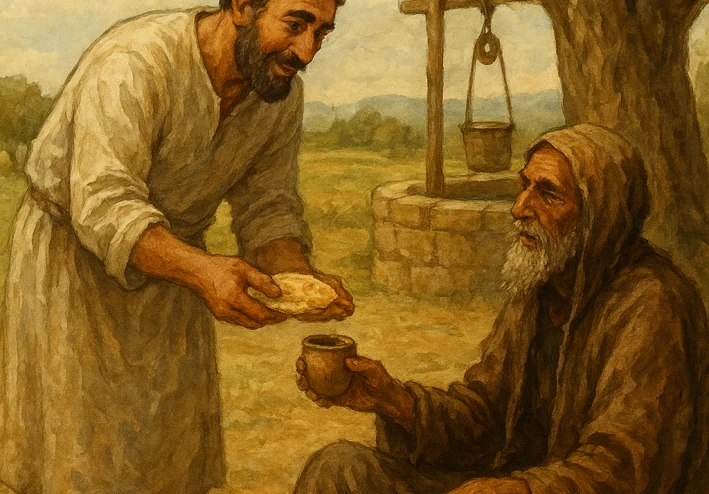
The Orphan’s Date
The Orphan’s Date
In the golden deserts of Madinah, during the time of the Prophet Muhammad (peace be upon him), there lived a poor orphan named Harith. He had no parents, no wealth, and barely any bread to eat. His days were spent sweeping stalls and carrying water, earning a few copper coins and a dusting of hope. Still, he guarded his prayers and whispered supplications at dawn, trusting that Allah never forgets the small or the unseen.
One scorching afternoon, Harith sat beneath a towering date palm at the edge of a grove. The wind hissed through the fronds like a kettle on a fire, and his empty stomach answered with its own complaint. The ripened clusters swayed above him, rich and near, yet out of reach. The trees belonged to a stern landowner, and Harith feared Allah too much to pluck even one without permission.

As the sun slipped west, the Prophet Muhammad (peace be upon him) passed by and noticed the boy’s hollowed cheeks and guarded gaze. He sat beside him, the way a father sits beside a son, and asked softly, “Why the sorrow, my child?” Harith lowered his eyes. “I am hungry,” he said, “but I will not take what is not mine.” The Prophet’s face brightened with mercy.
The Prophet approached the grove’s owner and offered a radiant bargain: “Give me this tree in exchange for a tree in Paradise.” The man, hardened by habit, scoffed and refused. Some companions shifted with disappointment, their hearts aching for the orphan, yet bound by justice to respect the owner’s right.
Among those present was Abu Dahdah, a man whose heart bloomed with generosity. He hurried to the owner and said, “I will trade you my orchard—six hundred trees, wells, and walls—for that single palm.” Greed lit the owner’s eyes; he agreed at once. Abu Dahdah returned to the Prophet with a smile that tasted of sacrifice. “O Messenger of Allah,” he said, “the tree is yours to give.”
The Prophet returned to Harith and placed a gentle hand upon his shoulder. “My son,” he said, “this tree is now yours. Eat when you need, shade yourself when you tire, and give to the hungry when they come.” Tears spilled down Harith’s face as he tasted his first date, its sweetness a reminder that hunger can be a doorway through which mercy enters.
Abu Dahdah went home and told his wife of the trade. She welcomed the news with a believer’s clarity. “What a blessed bargain,” she said. “We gave what passes to gain what remains.” That evening they broke their bread with lighter hearts, as if every crumb promised a harvest in the hereafter.
Harith grew into a young man with a generous hand. He watered the tree, welcomed travelers to rest in its shade, and kept a basket by the trunk for anyone too shy to ask. When people praised him, he would point to the sky and say, “It was Allah who fed me, through the compassion of His Messenger and the charity of Abu Dahdah. I only pass the favor on.”
Years later, the grove still whispered the story of a boy who would not steal, a Prophet who interceded, and a family who traded hundreds of trees for a single palm and a promise of Paradise. And each season, when the dates blushed and fell like small comets, the poor gathered, and Harith smiled—remembering the day hunger led him to a feast that never truly ended.
































